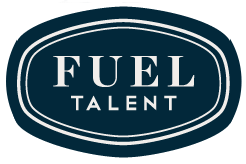The Art of Demonstrating Soft Skills in a Job Interview
In today's job market, soft skills are becoming increasingly important to employers. These skills refer to a person's ability to communicate, work well with others, problem-solve, and adapt to new situations. While technical and hard skills are still necessary for many positions, soft skills can be the deciding factor in whether or not a candidate gets hired. According to a survey conducted by LinkedIn, 57% of leaders say that soft skills are more important than technical skills. That's why it's crucial to know how to showcase your soft skills in an interview, on your resume, and keep them in mind during your job search.
Before you can showcase your soft skills on your resume or in a job interview, it is important to understand the top soft skills that employers and recruiters are looking for. While every job is different, there are a few common soft skills that are highly valued by employers. Some of these top soft skills include:
Communication: Conveying information clearly and effectively.
Teamwork: Working collaboratively with others.
Adaptability: Adjusting to changes in the workplace.
Leadership: The ability to inspire and motivate others.
Problem-solving: Identifying problems and finding solutions.
Time management: Managing your time effectively.
While this is not a complete list, it’s a good starting point. When preparing for a job interview, think about the set of skills that are most important for the job you’re applying for, and focus on demonstrating those skills to your potential employer.
Prepare specific examples
Before you head into your interview, review the job description and take some time to think about some specific situations where you've used your soft skills. Think about a time when you had to communicate effectively with a difficult coworker, or when you had to come up with a creative solution to a problem at work. Having specific examples and measurable results ready to share will help demonstrate your soft skills in a tangible way, rather than just talking in generalities.
When discussing your examples with a hiring manager, it is a good idea to use the STAR method - Situation, Task, Action, and Result. Start by describing the situation you were in, then describe the task that needed to be accomplished. Follow with the action you completed to accomplish the task, and finally, describe the result or outcome of your actions. Your critical thinking skills will also show when coming up with examples of soft skills through this process.
By using the STAR method, you provide a clear and concise explanation of how you used your problem-solving skills to overcome a challenge. This structured response demonstrates your ability to think critically, take initiative, and work collaboratively to achieve a positive outcome. Shauna Conlon, the Director of our Administrative and HR Practice at Fuel Talent says that “When preparing for an interview, we encourage candidates to practice giving these examples out loud, so they can get comfortable talking about themselves and so they can self-edit. You want to be sure to give examples that are relevant and concise. Practicing these examples out loud will help you get even more comfortable for your interview.”
Highlight your teamwork abilities
Many jobs require employees to work as part of a team, so it's important to highlight your ability to collaborate with others. A study conducted by the National Association of Colleges and Employers found that the ability to work in a team is the most desirable quality in a candidate, followed by the ability to communicate effectively. Being a team player involves working collaboratively with others to achieve a common goal, which requires strong communication, trust, and willingness to help others.
One way to effectively demonstrate your teamwork skills in an interview is by sharing examples from your past experiences. Think of times when you worked effectively with a team, either in a professional or personal setting, and share specific details about the project or task. Be sure to explain your role within the team and how you contributed to the team's success. By highlighting your soft skills here, you may also be demonstrating your leadership skills and ability to step into this position if needed.
During the interview process, it is important to pay attention to how the interviewer talks about the team and the company culture. This will give you some insight into how important teamwork is to the organization and then you can tailor your responses to align with the company's values. You can also ask questions about the team dynamics and how team members work together to achieve their goals. Once the interviewer answers your question, you can respond with a quick summary almost echoing their response, and share that is what you are looking for (assuming it is) in your next company in terms of culture and team environment. You can also give a quick example of what a past supervisor or colleague would say about you when it comes to demonstrating these traits. This will show your interest in being a part of the specific team and your willingness to contribute to its success.
Be adaptable and flexible
In today's fast-paced work environment, it's important to be able to adapt quickly to changing situations. Employers and recruiters are often looking for flexible candidates who can easily adjust to challenges. During your interview, discuss any instances in which you had to adapt to a new situation quickly. This could include taking on a new project at work, learning a new software program, or working with a new team. Highlight how you were able to adapt and succeed despite any challenges.
Another way to showcase your adaptability is to talk about a time when you had to pivot in response to a change in circumstances. This could include a change in the market, a change in organizational goals, or a change in team dynamics. Describe some steps you took to adjust to the change to make sure that the project or task was still completed successfully. This shows that you are flexible and are able to handle unexpected challenges.
It's also important to demonstrate your ability to handle ambiguity and uncertainty. In many jobs, there are times when tasks are unclear or vague. Employers want to hire candidates who are able to handle these situations with ease, demonstrate solid interpersonal skills, and maintain a positive attitude. To showcase this skill, talk about a time when you were faced with uncertainty and how you handled it. Did you ask questions to clarify the situation? Did you work with others to gather information and come up with a plan? Highlighting your ability to handle uncertainty demonstrates your ability to adapt to new situations and navigate challenges effectively.
Lastly, you can also showcase your adaptability when it comes to the interview process. Going through interviews is not always a smooth process. It is important to remember that everyone is human and handling many different responsibilities, while also conducting interviews. Demonstrating your adaptability and flexibility if someone is running late or needs to reschedule an interview can demonstrate this soft skill better than anything.
Show off your communication skills
Strong communication skills are essential in almost any job, so it's important to showcase your ability to communicate effectively. To showcase your communication skills in a job interview, you need to prepare ahead of time by researching the company and the position you are applying for. This will give you a better understanding of the company's culture and the type of communication style that is most effective for the position. You can then use this information to tailor your communication style to the company's needs.
If the interview is in person, remember to show off your communication and social skills and make a good impression from the second you step inside the building. This includes greeting the people at the front desk, interactions in the elevator, and everyone you come in contact with. During the interview, make sure to listen and respond thoughtfully to questions. Take the time to fully understand the question and clarify any confusion before answering. It's okay to take a small pause to think about the question and your answer before speaking. This will show the interviewer that you are able to communicate effectively and thoughtfully. If you have experience with public speaking, be sure to mention this as well, as this is an important soft skill that is valuable.
Nonverbal communication is also an important part of effective communication. Be sure to pay attention to your body language, tone of voice, and facial expressions. Make eye contact with the interviewer and smile when appropriate or with the green light on your computer when doing a video interview. You should avoid having your resume in front of you during an interview, as it often will distract you from making solid “eye contact”. Use a confident and professional tone of voice to convey your ideas clearly and effectively. After the interview is over, you can further demonstrate your communication skills by writing a thank you letter, most commonly by connecting on LinkedIn or in an email, but can also be a physical letter that is delivered.
Be confident and positive
Finally, it's important to showcase your confidence and positive attitude during your interview. Employers want to hire candidates who are enthusiastic and motivated, so be sure to show your passion for the job and the company. Speak positively about your previous work experiences and explain how they have prepared you for this new role. Remember to smile, make eye contact, and speak with enthusiasm and confidence.
Showcasing your soft skills during an interview can be the deciding factor in helping you stand out from other candidates. By preparing specific examples, highlighting your teamwork abilities, being adaptable and flexible, showing off your communication and people skills, and being confident and positive, you'll be able to demonstrate strong soft skills in a way that sets you apart from other candidates. The World Economic Forum's Future of Jobs Report predicts that by 2025, the demand for soft skills such as creativity, critical thinking, and persuasion will increase by 26%. So, remember, soft skills are just as important as technical skills in today's job market, so don't be afraid to sell your soft skills and show what you have to offer

